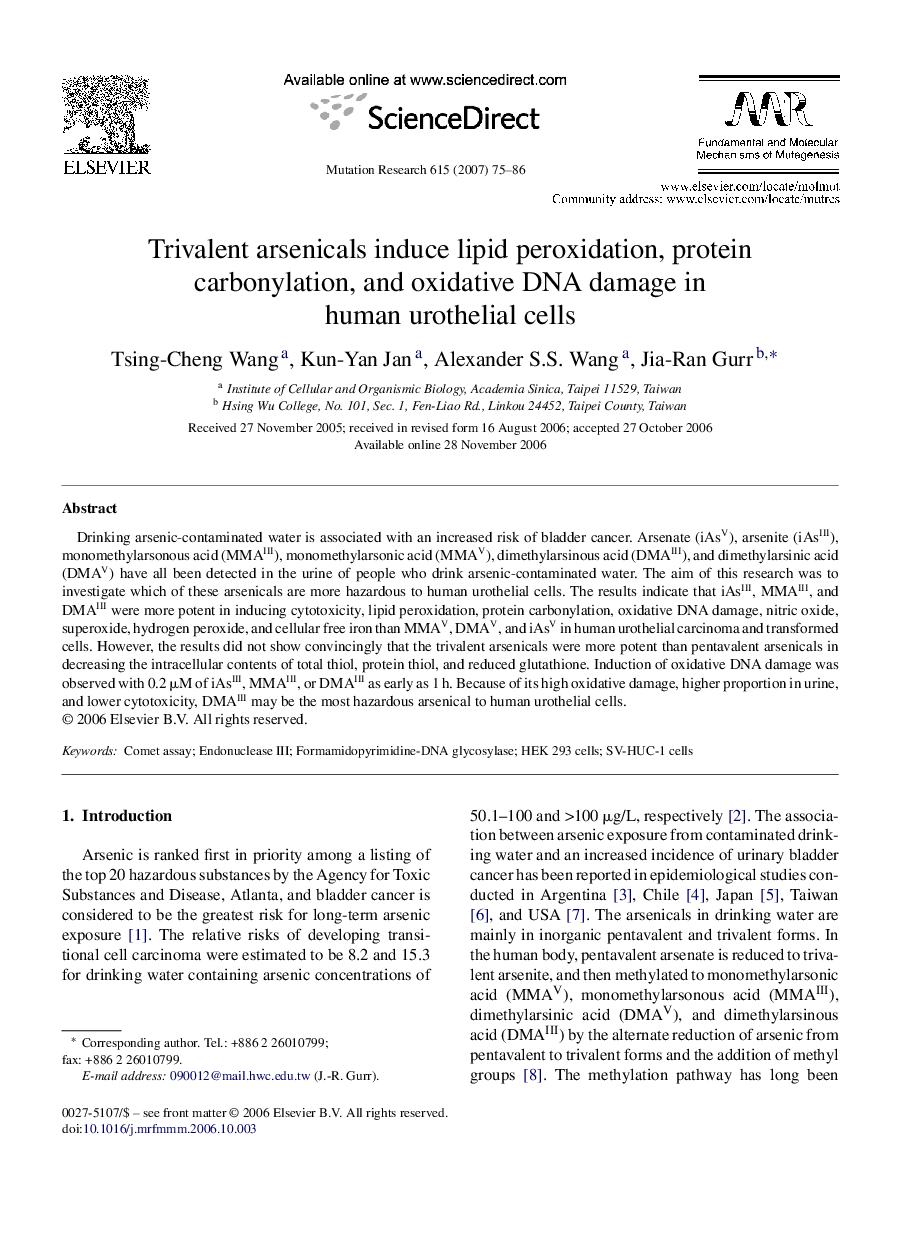| Article ID | Journal | Published Year | Pages | File Type |
|---|---|---|---|---|
| 2147515 | Mutation Research/Fundamental and Molecular Mechanisms of Mutagenesis | 2007 | 12 Pages |
Drinking arsenic-contaminated water is associated with an increased risk of bladder cancer. Arsenate (iAsV), arsenite (iAsIII), monomethylarsonous acid (MMAIII), monomethylarsonic acid (MMAV), dimethylarsinous acid (DMAIII), and dimethylarsinic acid (DMAV) have all been detected in the urine of people who drink arsenic-contaminated water. The aim of this research was to investigate which of these arsenicals are more hazardous to human urothelial cells. The results indicate that iAsIII, MMAIII, and DMAIII were more potent in inducing cytotoxicity, lipid peroxidation, protein carbonylation, oxidative DNA damage, nitric oxide, superoxide, hydrogen peroxide, and cellular free iron than MMAV, DMAV, and iAsV in human urothelial carcinoma and transformed cells. However, the results did not show convincingly that the trivalent arsenicals were more potent than pentavalent arsenicals in decreasing the intracellular contents of total thiol, protein thiol, and reduced glutathione. Induction of oxidative DNA damage was observed with 0.2 μM of iAsIII, MMAIII, or DMAIII as early as 1 h. Because of its high oxidative damage, higher proportion in urine, and lower cytotoxicity, DMAIII may be the most hazardous arsenical to human urothelial cells.
